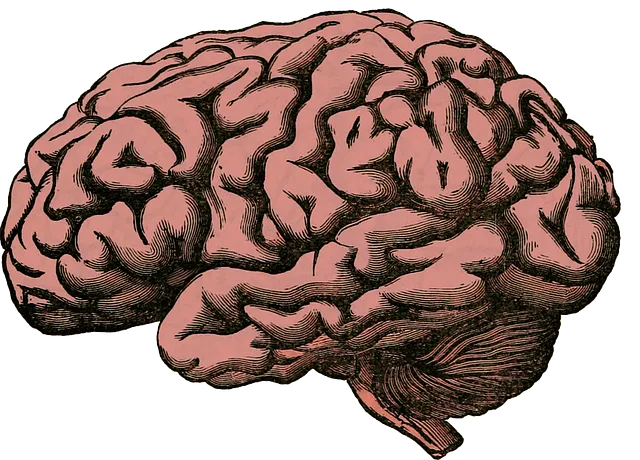Coping skills are essential for managing life's challenges and maintaining mental wellness. Kaiser's inpatient mental health services in Colorado Springs offer comprehensive, culturally sensitive care for various conditions, combining therapy with risk assessment and evidence-based techniques like CBT. By identifying personal coping strategies, engaging in self-care practices, and seeking professional guidance, individuals can enhance their resilience and achieve lasting mental wellness. Regular self-care activities, peer support, and dedicated time for emotional healing reinforce healthy coping mechanisms, addressing the need for effective inpatient mental health care in Colorado Springs. Searching "does Kaiser have inpatient mental health Colorado Springs" provides valuable information for those seeking these services.
“Explore effective coping skills development, a vital tool for maintaining mental well-being. This comprehensive guide delves into strategies that empower individuals to navigate life’s challenges. We examine the foundational role of understanding coping skills and how facilities like the Kaiser Inpatient Mental Health unit in Colorado Springs contribute to resilience. From identifying personal coping strategies to implementing evidence-based techniques, this article provides a roadmap for enhancing coping abilities in daily life, particularly relevant to those seeking support in the Colorado Springs area.”
- Understanding Coping Skills: A Foundation for Mental Well-being
- The Role of Kaiser Inpatient Mental Health in Colorado Springs
- Identifying Personal Coping Strategies: A Journey to Resilience
- Evidence-Based Techniques for Effective Coping Skill Development
- Implementing and Maintaining Coping Skills in Daily Life
Understanding Coping Skills: A Foundation for Mental Well-being

Coping skills are essential tools for navigating life’s challenges and maintaining mental wellness. Understanding coping mechanisms is a fundamental step towards fostering self-care practices and managing stress effectively. It empowers individuals to respond, rather than react, to difficult situations, thereby enhancing their overall resilience.
For those seeking support, resources like the inpatient mental health services offered by Kaiser in Colorado Springs can play a pivotal role. These programs provide intensive care and specialized treatment plans tailored to individual needs. Incorporating self-care strategies alongside professional guidance, such as risk management planning for mental health professionals, ensures a comprehensive approach to coping skills development and promotes lasting mental wellness.
The Role of Kaiser Inpatient Mental Health in Colorado Springs

In Colorado Springs, Kaiser Inpatient Mental Health plays a pivotal role in providing specialized care for those in need. This facility offers comprehensive services, catering to various mental health conditions and ensuring patients receive expert treatment. With a focus on inpatient care, Kaiser focuses on intensive support and stabilization, crucial steps in the journey towards improved mental wellness.
One of the standout aspects of Kaiser’s approach is its commitment to Cultural Sensitivity in Mental Healthcare Practice. Recognizing the diverse backgrounds of its patients, Kaiser incorporates culturally responsive care, ensuring emotional intelligence and tailored support. This inclusive environment promotes trust and encourages individuals from all walks of life to access the help they deserve, fostering a sense of belonging and understanding.
Identifying Personal Coping Strategies: A Journey to Resilience

Identifying Personal Coping Strategies is a transformative journey towards resilience. It involves introspecting to understand unique triggers and stress points. Every individual has their own set of coping mechanisms, be it engaging in physical activities for stress reduction, practicing mindfulness techniques, or connecting with supportive networks. This self-awareness allows one to develop effective strategies tailored to their needs, fostering a sense of control and confidence boosting abilities.
For those seeking professional guidance, resources like the inpatient mental health services provided by Kaiser in Colorado Springs offer specialized care. These programs not only focus on symptom management but also equip individuals with valuable coping skills. Through therapy, risk assessment for mental health professionals can be conducted, enabling a comprehensive understanding of one’s mental health landscape. By combining personal exploration and professional support, individuals embark on a path towards enhanced resilience and improved overall well-being, including effective stress reduction methods.
Evidence-Based Techniques for Effective Coping Skill Development

Evidence-based techniques play a pivotal role in fostering effective coping skill development, especially within the context of mental health support. Organizations like Kaiser, with their inpatient mental health facilities in Colorado Springs, have pioneered approaches that tackle not just symptoms but also the underlying causes of distress. One such technique is Cognitive Behavioral Therapy (CBT), which helps individuals challenge and change negative thought patterns and behaviors contributing to their mental illness.
Additionally, Mental Illness Stigma Reduction Efforts focus on creating a supportive environment that encourages open dialogue and understanding. Cultural Sensitivity in Mental Healthcare Practice is another key aspect, ensuring that coping strategies are tailored to an individual’s unique cultural background and beliefs. Encouraging Self-Care Routine Development for Better Mental Health allows people to proactively manage their well-being through activities like exercise, mindfulness, and adequate sleep, which can significantly enhance coping abilities.
Implementing and Maintaining Coping Skills in Daily Life

Implementing coping skills acquired through resources like the Kaiser’s inpatient mental health services in Colorado Springs or Healthcare Provider Cultural Competency Training is a key step towards maintaining mental wellness. These skills, often honed during intense therapeutic settings, must be integrated into daily routines for effective long-term use. One practical approach involves setting aside dedicated time each day to practice mindfulness, stress reduction techniques, and emotional healing processes learned during treatment.
Engaging in regular self-care activities, such as meditation or journaling, can serve as anchors in an individual’s day, reminding them to pause, reflect, and reconnect with their inner selves. Additionally, sharing experiences and strategies with peers through support groups or the Mental Wellness Podcast Series Production can foster a sense of community and accountability, further reinforcing the adoption of healthy coping mechanisms.
Coping skills development is a pivotal aspect of maintaining mental well-being, as evidenced by Kaiser’s comprehensive approach in Colorado Springs. By understanding and implementing evidence-based techniques, individuals can enhance their resilience and navigate life’s challenges effectively. The article has explored various strategies, from identifying personal coping mechanisms to the role of inpatient mental health services offered by Kaiser, emphasizing the importance of a multi-faceted approach. Through consistent practice and integration into daily routines, these skills become powerful tools for fostering emotional balance and overall well-being, ensuring individuals can thrive even in the face of adversity. Furthermore, recognizing personal coping strategies is a journey that empowers folks to take charge of their mental health and embrace life’s complexities with greater confidence.






